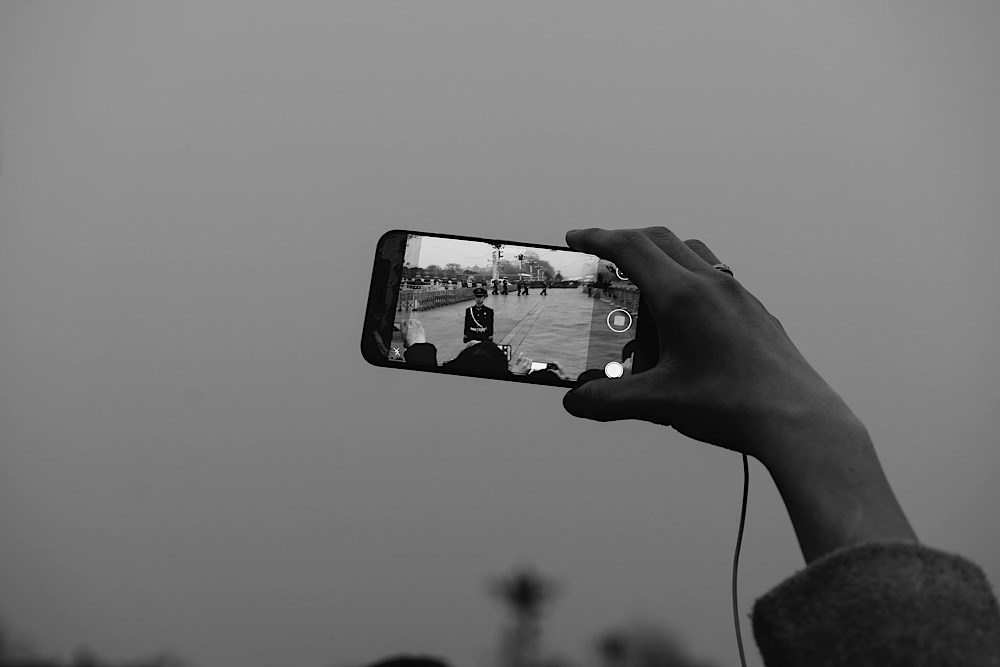Beijing blocks iPhones: tech war between China and U.S. behind security
China bans Apple smartphones and foreign phones in state-owned and government enterprises. A ban set to have a major impact on the iPhone 15 launch scheduled for mid-month. Huawei's top-of-the-line model represents a viable alternative. China's obsession with national security related to electronic devices.
Beijing (AsiaNews) - Beijing has strengthened the ban on iPhones and, more generally, foreign smartphones and mobile devices within government agencies and state companies, citing "national security issues" as the reason.
The new provision will concern officials operating in the central apparatus of power, from the government to sensitive bodies where confidential or strategically important information and communications are conveyed.
The document has not yet been published so the provisions are not known in detail, however the news alone was enough to cause Apple shares to collapse by 4% and a further 3% last week, with a loss in value of 194 billion of dollars.
According to official statistics, China has seven million civil servants. If workers in Communist Party-affiliated entities, public schools, hospitals and other agencies funded by the state budget are also included in the count, the population on the government payroll may exceed 80 million.
It is a huge number including government employees and para-state companies who are animating discussions on social networks by commenting on the decision to ban the use of smartphones from foreign tech industries.
The group of civil servants and state-owned companies can represent a profitable market for high-end electrical products, as their income is higher than the average of private companies. It is easy to predict that the provision will impact sales of mobile phones from foreign brands, including iPhone and Samsung, while favoring Chinese brands such as Huawei.
China is Apple's third largest market, accounting for 19% of total revenue last year. For Bernstein analyst Toni Sacconaghi the ban could reduce sales of iPhone units by up to 5% in the country of the dragon.
Added to this is the not-so-subtle message aimed at a larger scale of consumers who are invited to use electronic products manufactured by Chinese companies, which would represent an even more serious threat to Apple.
Chinese authorities are becoming increasingly wary of foreign electric brands. An attitude also linked to recent news cases: among others, the local media gave wide coverage to the news according to which the anti-corruption body was unable to unlock the encryption of the iPhone belonging to a local official under investigation.
Beijing has also banned products from US chip company Micron from its key infrastructure, fearing national security risks. Added to this is the ban on entering government buildings and military areas for Tesla electric cars.
The Cupertino company is, despite itself, fully involved in the cold war in the fields of economics and technology underway between the United States and China and must face a strong internal competitor in the Asian giant. In fact, Huawei recently launched the flagship model Mate 60 Pro with a chip that uses a 7-nanometer manufacturing process, supplied by the largest local chip manufacturer (Smic).
The debut took place when US Commerce Secretary Gina Raimondo arrived on an official visit to China. State media on the occasion applauded Huawei's turnaround and the failure of US sanctions.
The new phone made in China has shown that the sanctions imposed by Washington are not having the desired effects, while the American commercial authorities have launched an investigation into the specifications of the chip used by Beijing and have promised to defend national security. US lawmakers are also scrutinizing Huawei's suppliers and calling for a halt to the export of technology to controversial Chinese firms.
The presentation of a cutting-edge iPhone 15 represents a challenge for Apple, also in consideration of the alternative represented by Huawei, the recent government ban imposed by Beijing and, lastly, in consideration of the rebirth of a patriotic feeling in society.
This is coupled with the fact that millions of Chinese work on the assembly lines of Apple products which, in response, is trying to diversify its supply chain. And, last but not least, to transfer production to India and Vietnam, after China's blockade as part of the zero-Covid policy through lockdowns and blocks on production and trade caused enormous impacts on the economy. It is unclear how the ongoing economic war between the two global powers will affect multinational giants and the lives of ordinary people, but the game is on.
10/01/2018 09:44
12/11/2008







.png)










